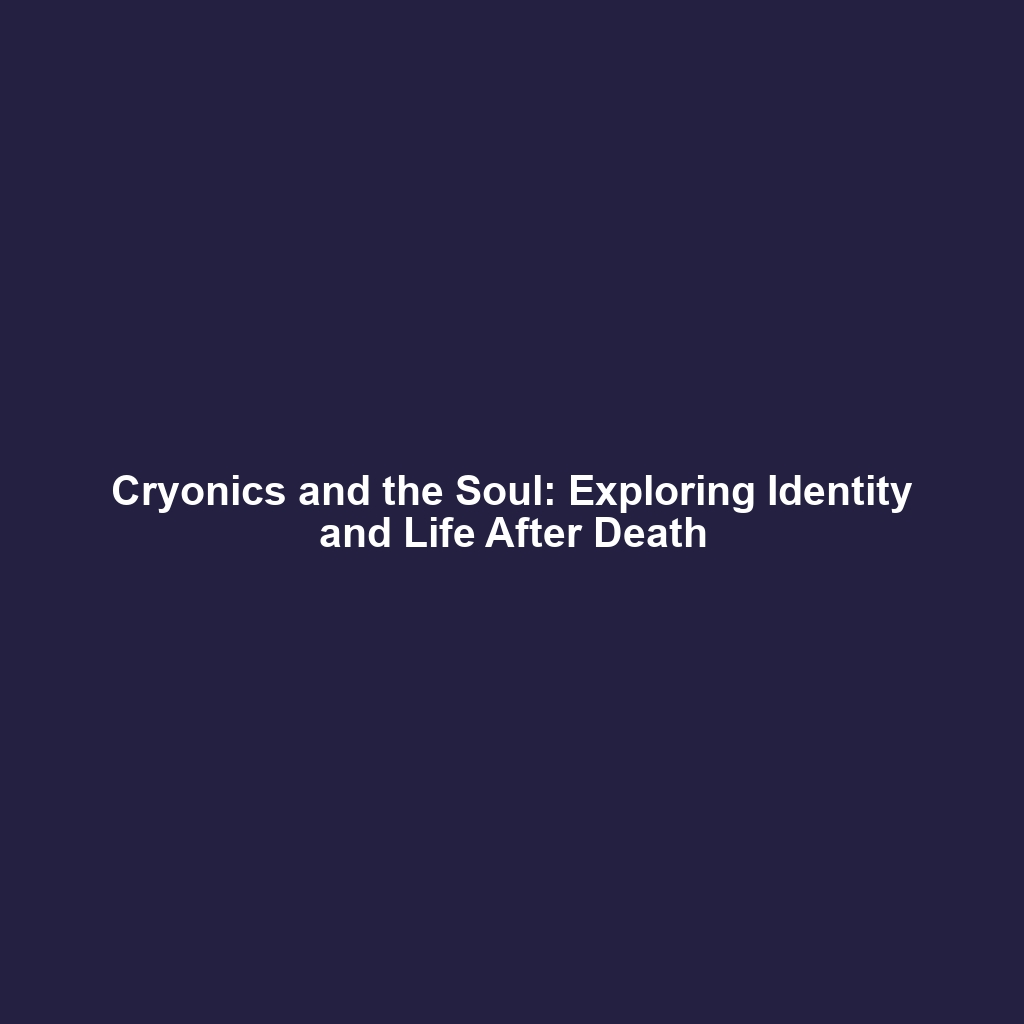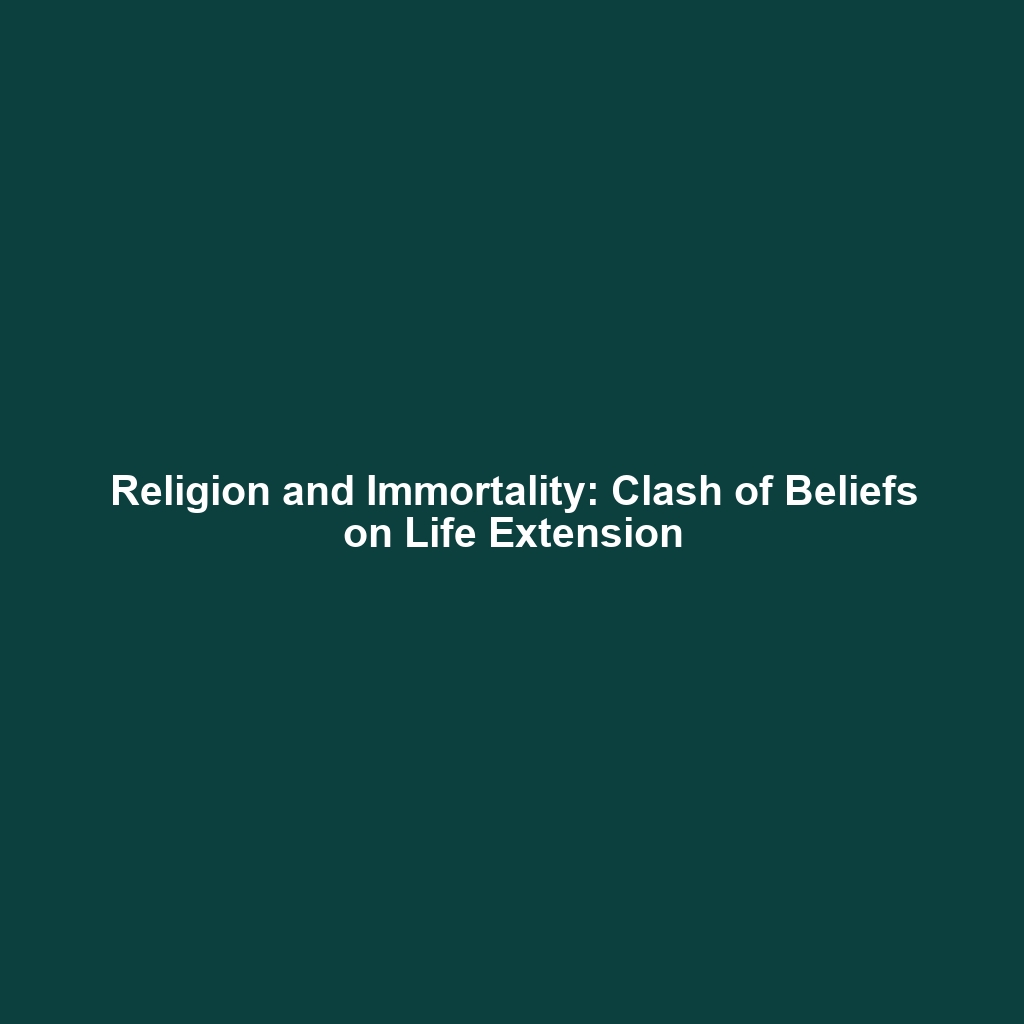The “Soul” Question in Cryonics and Life Extension
Introduction
The intersection of cryonics and life extension brings forth profound questions regarding personal identity and the concept of the “soul.” As advancements in cryonics technology offer the potential for preserving life beyond its natural limits, many individuals grapple with spiritual and metaphysical implications. The “soul” question ponders what it means to be human and whether consciousness can truly be preserved in a state of suspended animation. Understanding these issues is vital as we navigate the moral, ethical, and scientific landscapes of cryonics and life extension.
Key Concepts
What Constitutes Personal Identity?
Central to the soul question is the philosophical inquiry into what defines personal identity. Is it the continuity of consciousness, the memories accumulated over a lifetime, or perhaps the physical body itself? This question challenges traditional notions of identity and raises valid concerns about the implications of cryopreservation.
The Metaphysical Implications
The metaphysical aspects of cryonics delve into the essence of the “soul,” exploring whether it is independent of the body or intrinsically linked to it. In the context of Cryonics & Life Extension, these inquiries can profoundly affect how society views resurrection through scientific means.
Applications and Real-World Uses
The implications of addressing the soul question extend to various real-world applications within the realm of Cryonics & Life Extension. Key uses include:
- Development of protocols for cryopreservation that consider ethical and spiritual concerns.
- Informed consent processes that address underlying fears and beliefs about identity and existence.
- Integration of psychological support for families navigating concerns about life after death.
Understanding how the soul question is utilized in clinical scenarios can foster greater acceptance of cryonics as a legitimate option for life extension.
Current Challenges
Studying the soul question within Cryonics & Life Extension presents multifaceted challenges, including:
- Scientific uncertainty regarding the ability to accurately restore brain function after cryopreservation.
- The philosophical debate surrounding the nature of consciousness and identity post-revival.
- Ethical dilemmas concerning the implications of resuscitating individuals with altered identities.
Future Research and Innovations
Ongoing research is vital to explore the implications of the soul question for future Cryonics & Life Extension innovations. Breakthroughs in neuroscience and consciousness studies may lead to new technologies capable of enhancing the potential for identity preservation during the cryopreservation process. Additionally, the development of next-gen methodologies aimed at enhancing the viability of preserved individuals could revolutionize our understanding of life after death.
Conclusion
The exploration of the soul question in the context of Cryonics & Life Extension is not merely an academic exercise; it touches the core of what it means to be human. As we advance our understanding of cryonics technologies, it is essential to engage with these spiritual and metaphysical concerns. The dialogue surrounding personal identity and the notion of the soul must continue as we move forward into a new era of life preservation. For further exploration, please visit our articles on Cryonics Technology and Ethics of Life Extension.

